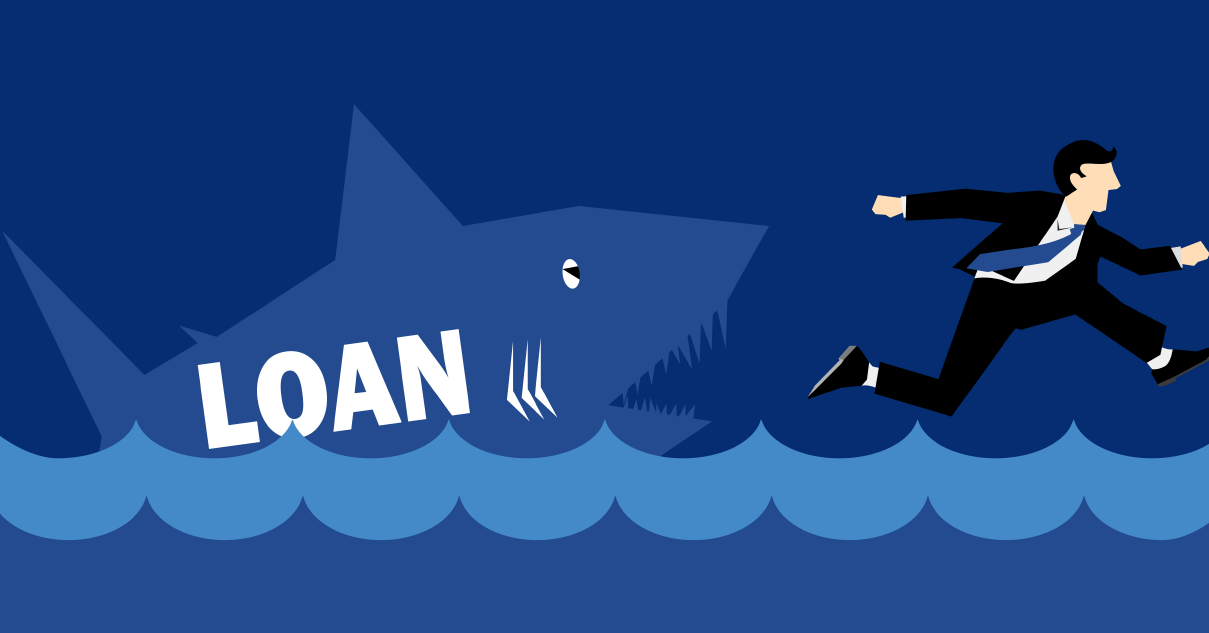What seem to be loan sharks, and what do they do?
The loan shark is somebody who lends money at much higher interest rates. Whereas other respectable businesses perform the same job, violence identifies a loaner from a shark. They would threaten or harm you if you always cannot repay.
In addition, the incentives are so large that they exceed what is perfectly lawful. Loan sharks were frequently part of criminal organizations such as the mob, the Yakuza, etc. Even if they don’t use violence, they place you at a loss.
📈🤖 Unlock unparalleled trading potential with GPT Stocks Master AI! Revolutionize your portfolio, leveraging real-time insights and predictive analytics. Don’t miss out – step into a world where precision and profitability meet. Ready to transform your trading journey? Click “Master My Trades” now for your exclusive access! ✨🚀📊

There is legislation in the Philippines that prohibits loan sharks.
Is there legislation in place to protect customers from loan sharks? They do exist. For one thing, the Philippines’ constitutional interests are controlled.
You can’t simply lend money and impose any interest rate you choose.
- The Borrowing Business Administration Act of 2007 is Republican Act No. 9474.
- The Loan Provider Law of 1998, or R.a. No. 8556.
- Senate Committee Number. 121, 18th Parliament.
- The Fair Credit Billing Act, or R.a. No. 3765.
You may register a lawsuit and bring a company to trial if they break some of these rules. The Integrity in Borrowing Act is another name for the Reality in Borrowing Law. It simply states that even if we lend money to someone, you must tell them plenty about the transaction. Failing to do so is a criminal offense.
How to Fight Back Against Loan Shark Attacks?
Borrowers who are presently dealing with loan sharks will discover the tools they need in this area. In addition, it’ll assist them in battle and defend themselves from illegal loan shark tactics.
File A Complaint.
There is a procedure to notify loan sharks inside the Philippines when you’ve been a sufferer. In addition, you can register a lawsuit with the Securities & Exchange Board by going to their office.
Here are a few pointers.
- Fill out the formal complaint to the best of your ability.
- Ensure you include any relevant papers or documentation to back up your claim.
- Include a government-issued proof Of identity.
- Make sure you’ve done whatever you can to fix the loan shark situation.
Overall, it would help if you kept from getting into this position. Don’t take out a loan from a shady lender if you’re not certain if the lender is authorized. It’s best to be safe than sorry.
Avoid paying your bills.
Repaying to your shady lender demonstrates that you’re always under their control. You must cease repaying your lender after recognizing somebody as a loan shark. Please alert the police right away and stay still until aid comes. Never, already pay them a dime.
Humanitarian Service Organizations Can Assist You.
Charitable and community services groups can lawfully defend you when authorities cannot contact you promptly. To get the support you require, contact the groups and services.
Please find out how to manage their threats.
Loan sharks may use force against you or your relatives. For example, they allegedly destroyed borrowers’ shop booths or disgracefully called people out at their jobs in instances all over the Philippines. In addition, they now use social media to intimidate and vilify customers who cannot repay their debts due to exorbitant interest rates.
The Philippine police department is ready to help you in a violent threat. You can also file lawsuits targeting criminal lending helpers, sometimes known as “fronters,” subject to legal penalties.
CONCLUSION.
One should avoid loan sharks at all costs. They’re out to harm you, and they’ll be waiting for you when you’re most susceptible. Instead, you should seek assistance from bankers and other legal entities when you suddenly require money. These businesses would not bury you in bankruptcy; they will only cost you what would be entirely legal.
